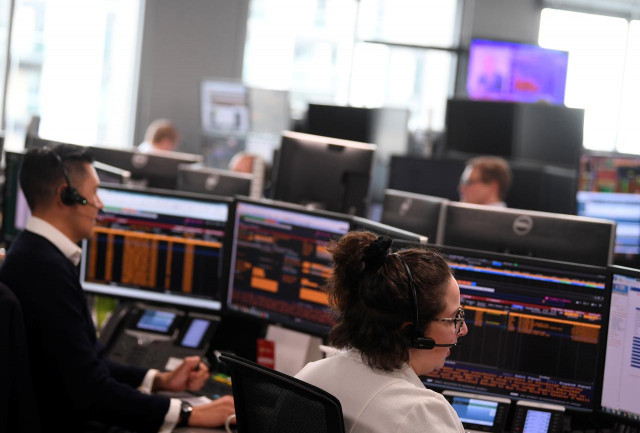World stocks suffer hefty losses on coronavirus shock and oil price fall
Saudi Arabia stuns markets with plans to raise production after collapse of OPEC's supply cut agreement with Russia

Saudi Arabia stuns markets with plans to raise production after collapse of OPEC's supply cut agreement with Russia. PHOTO: REUTERS
Saudi Arabia had stunned markets with plans to raise its production significantly after the collapse of OPEC's supply cut agreement with Russia - a grab for market share reminiscent of a drive in 2014 that sent prices down by about two-thirds.
Brent crude and US crude futures slid as much as $14 to trade at $31.02 and $27.34 a barrel in chaotic trade.
They recovered some of their losses but were still down 23% - on track for their biggest daily fall since 1991, the start of the first Gulf War.
European equity markets suffered hefty losses with London, Frankfurt and Paris tumbling between 7-8%.
Italy's main index slumped 11% after the government ordered a lockdown of large parts of the north of the country, including the financial capital Milan.
The pan-regional Stoxx 600 fell into bear market territory -- a drop of more than 20% from its February peak.
Oil stocks sank, with Premier Oil down 51% and energy giant BP trading 21% lower.
Trading on US stock exchanges was halted immediately after opening on Monday as the S&P 500 fell 7%, triggering an automatic 15-minute cutout put in place after the 2008-09 financial crisis.
Dow Jones Industrials crashed 2,000 points in what would be its biggest one-day fall ever.
"We are seeing this week, finally, a full-scale liquidation and signs of capitulation, full-scale panic - we see this in every asset," said Paul O'Connor, head of multi-asset at Janus Henderson. "The oil price plunge adds a huge disruptive dynamic to markets that are already very fragile - investors are looking for losers in this move."
The losses in Europe followed sharp declines in Asia. MSCI's broadest index of Asia-Pacific shares ex-Japan lost 4.4% in its worst day since August 2015 and Japan's Nikkei dropped 5.1%. Australia's commodity-heavy market closed down 7.3%, its biggest daily fall since the 2008 global financial crisis.
Investors piled into safe-haven bonds, driving the 30-year US bond yields beneath 1% on bets that the Federal Reserve will be forced to cut interest rates by at least 75 basis points at its March 18 meeting, after having already delivered an emergency easing last week.
The number of people infected with the coronavirus rose above 110,000 and 3,800 have died from the virus.
"Markets appear to be capitulating as the virus arrives in the US, the heart of global finance," said BofA's David Hauner. There were mounting worries that US oil producers that had issued a lot of debt would be made uneconomic by the price drop.
The mood was also hit by North Korea firing three projectiles off its eastern coast. Noting that many central banks had little scope to ease further, Martin Whetton, Head of Bond and Rates strategy at CBA, said "let's hope we start to see some more clarity on the reaction."



















COMMENTS
Comments are moderated and generally will be posted if they are on-topic and not abusive.
For more information, please see our Comments FAQ